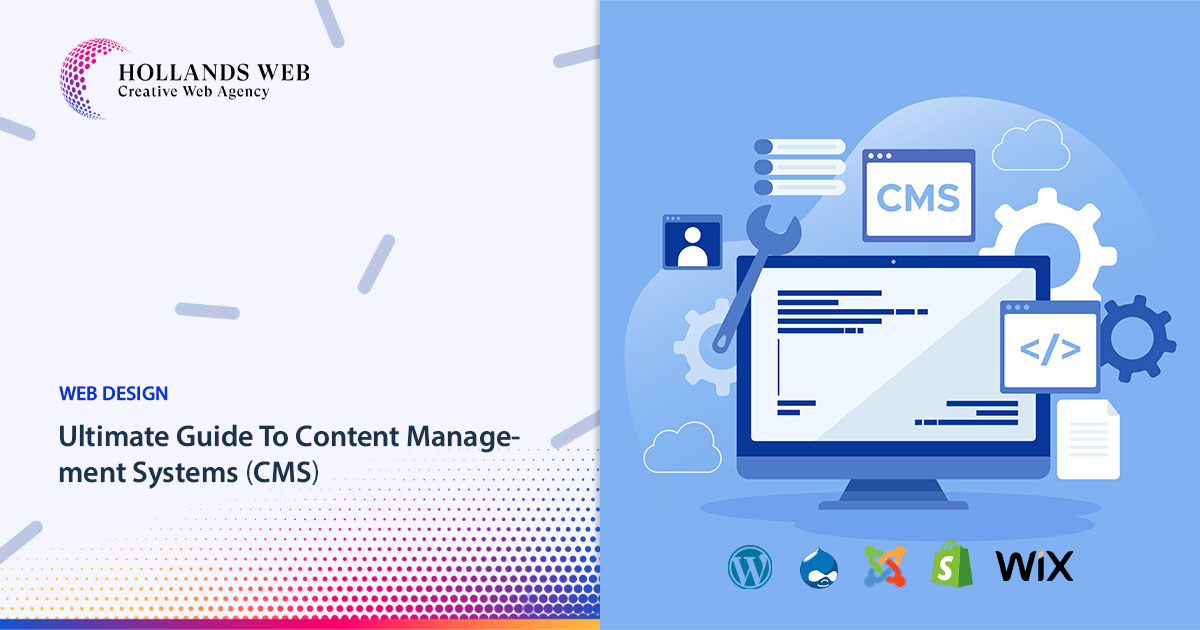
What is a CMS?
A Content Management System (CMS) is a software application that allows users to
create,
manage, and
modify digital
content on a
website without requiring technical knowledge or coding skills. It provides a user-friendly interface for content creation, editing, and publishing.
Structure of CMS:
A CMS typically has two major components: a content management application (CMA), as the front-end user interface that allows a user, even with limited expertise, to add, modify, and remove content from a website without the intervention of a webmaster; and a content delivery application (CDA), that compiles the content and updates the website.
Types of CMS:
-
Traditional CMS:
These are self-hosted platforms that require installation and management on your own web server. Examples include WordPress, Drupal and Joomla.
-
Cloud-based CMS:
These are hosted platforms where the CMS provider handles the technical aspects of hosting, security, and maintenance. Examples include Wix, Squarespace, and Shopify.
Common Features of CMS:
-
Content creation and editing:
CMSs offer intuitive interfaces for creating and editing content, allowing users to format text, add images, embed media, and create links.
-
Templates and themes:
CMSs provide a wide range of pre-designed templates and themes that determine the visual appearance of your website.
-
Plugins and extensions:
CMSs often offer a vast library of plugins and extensions to enhance functionality, such as contact forms, e-commerce, SEO tools, and more.
-
User management:
CMSs allow you to manage user roles and permissions, enabling multiple users to collaborate on content creation and editing.
-
Publishing and scheduling:
CMSs let you publish content immediately or schedule it for future publication.
-
SEO-friendly:
Many CMSs offer built-in SEO features, such as customizable URLs, meta tags, sitemaps, and SEO plugins, to improve search engine visibility.
-
Mobile responsiveness:
Modern CMSs prioritize mobile-friendly design and responsiveness, ensuring that your website looks good on various devices.
Benefits of Using a CMS:
-
User-friendly:
CMSs are designed to be user-friendly, allowing non-technical users to manage their websites easily.
-
Time and cost-efficient:
CMSs streamline content management processes, reducing the time and effort required to create and publish content.
-
Design flexibility:
With CMSs, you can choose from a variety of templates and themes or customize them to match your brand's identity.
-
Scalability:
CMSs can handle small websites and large-scale enterprise solutions, providing scalability as your business grows.
-
Community support:
Popular CMSs have large user communities, providing access to support forums, documentation, tutorials, and plugins/extensions developed by the community.
Choosing the Right CMS:
-
Consider your requirements:
Assess your website's needs, such as content type, scalability, e-commerce capabilities, integrations, and customization options.
-
Ease of use:
Evaluate the CMS's user interface, content editing experience, and available resources for learning and support.
-
Security:
Ensure the CMS follows security best practices, provides regular updates, and has an active security community.
-
Third-party integrations:
Check if the CMS supports integrations with tools and services you use, such as analytics, CRM, email marketing, and social media platforms.
-
Future growth:
Consider your long-term goals and ensure the CMS can accommodate your future needs.
Remember, choosing the right
CMS depends on your specific requirements and preferences. Research, evaluate demos, and consult with professionals to make an informed decision.
https://hollandsweb.com/ultimate-guide-to-content-management-systems-cms/?feed_id=85&_unique_id=65252fea60e02



0 Comments